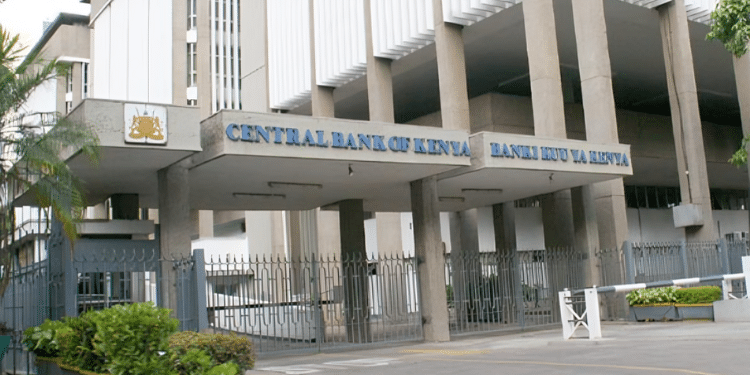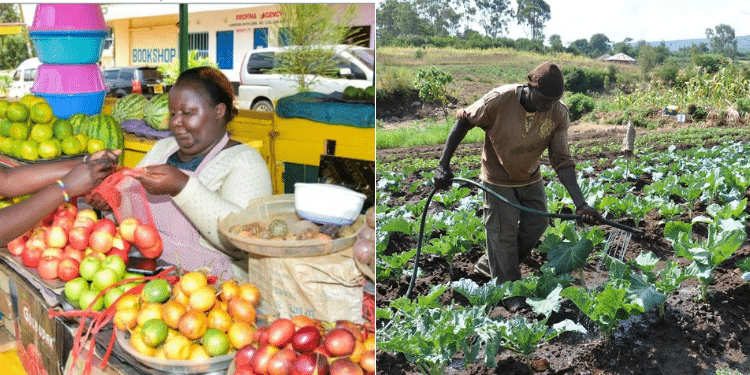The government is preparing to enforce harsh farming regulations in a move that will prevent more than three million farmers from selling fruits and vegetables in Kenya.
The mandatory rules, which the government has stated will be ‘anchored in law’, will mean only large farmers, companies, and importers will be permitted to supply fruit and vegetables in Kenya.
According to a press release by FarmBiz Africa, any trader buying fruits and vegetables from uncertified farmers will face stiff penalties.
The penalties will apply to middlemen, distributors, processors, or any direct buyers who purchase fruits and vegetables from any farmer who has not been certified as having implemented the 55-page, mandatory, KS1758 Kenyan standard.
Presented publicly as a food safety measure, the standard applies over 500 new rules for farmers that will cut off the supplies of over 90 per cent of the country’s locally consumed fruit and vegetables.

Farmers to Pay License of Ksh 10K
At the same time, farmers will be required to apply for National Environmental Management Authority (NEMA) licenses to grow vegetables at a minimum cost of Ksh10,000.
They will also be required to pay Ksh 5,500 to carry out soil and water analyses and pay Ksh 5,000 for certification with a national or international standards certifier, and prepare dozens more records, including analyzing the nutrient content of any compost or manure they use.
Also Read: Why Bill Seeking to Have Farmers Pay Ksh500 K Fine or Jail Term was Dropped
International agricultural Non-Governmental Organization (NGO) CABI said in July that it would not be possible for any individual farmers to cover the cost of certification.
Its conclusions followed an aid-funded project that gained certification for the only farmers’ groups yet to be certified, accounting for around 70 per cent of Kenya’s 4.5m farmers. Rough estimates suggest the cost is likely to exceed Ksh250,000 per farmer.
A study of Kenyan smallholder farmers done by Mercy Corps found that two-thirds of farmers earn less than Ksh7,740 a month from their produce although the average earnings from fruit and vegetables is higher.
Other Safety Rules Set
In a media interview, the spokesman of the Horticultural Crop Directorate (HCD) Collins Otieno confirmed that all farmers will be required to adhere to the standards, which also require farmers IDs, plot records and growing records to be kept and submitted to every produce buyer.
Also Read: Govt to Stop Importation of Sugar From Select Countries
The Horticultural Crops Directorate (HCD) and other agricultural organizations including the large-farmer lobby groups, the Fresh Produce Consortium of Kenya (FPEAK), as well as international agricultural organizations have all confirmed that the rules will be mandatory for farmers selling produce inside Kenya.
Yet, despite foreign-aid funding by TradeMark Africa for workshops, strategies, and the implementation of the new rules, none of these organizations has addressed the scale of disruption that will be caused to the country’s food supplies, or the temptation for enforcers to accept bribes where no alternative food sources are available for buyers.
Horticulture is the largest agricultural sub-sector in Kenya. In a national survey of 155 farmers in January 2024, 78 per cent reported growing at least one horticultural crop on their farm.
According to an analysis of Kenyan smallholder farmers, these crops earn the country’s farmers an average total monthly income of Ksh21,115.39 a month.
Altogether, the government will be closing down earnings to farmers of over Ksh280bn a year.
The new rules have been laid out in the Kenya Standard 1758: 2016 (KS 1758) Horticulture Industry Code of Practice.
Follow our WhatsApp Channel for real-time news updates
https://whatsapp.com/channel/0029VaB3k54HltYFiQ1f2i2C










































































